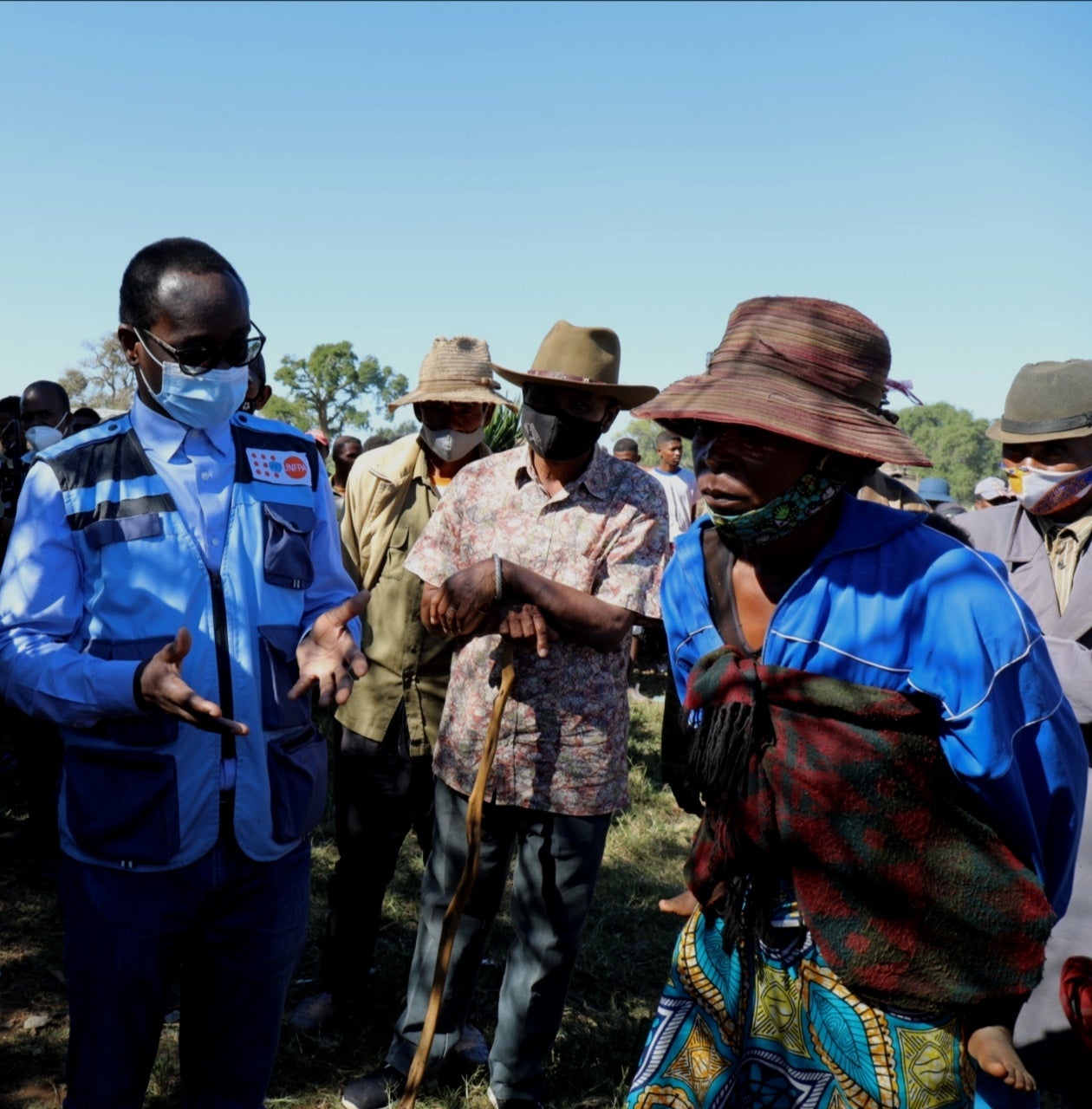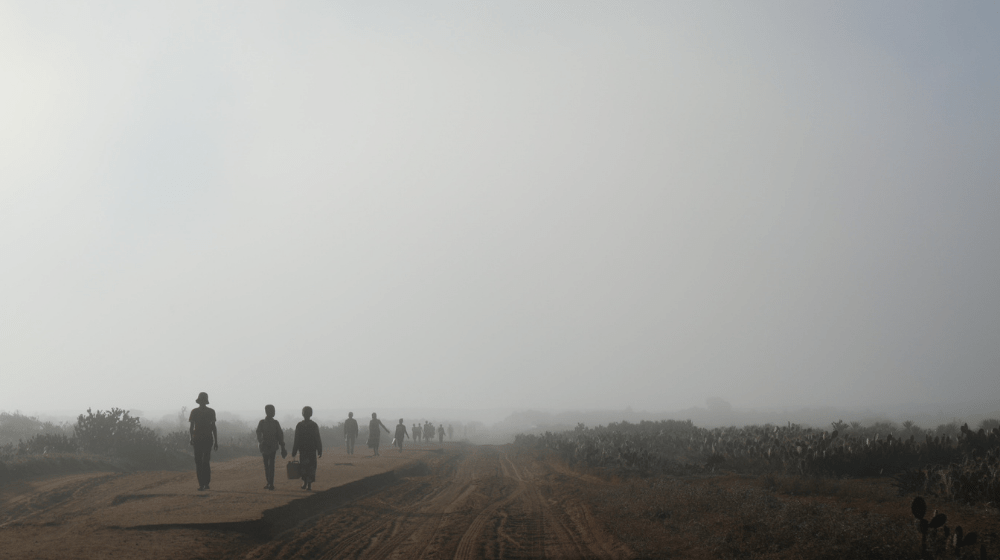Reflections by Koffi Kouame, UNFPA Resident Representative in Madagascar and Country Director for Comoros, Mauritius and Seychelles
GRAND SUD, Madagascar—Soalandy stooped down to pick up a pebble, threw it across the parched earth and watched it roll across the dusty ground. “Look at that,” said the 31-year-old mother of four, opening her arms wide. “The ground is so dry. How many more years can we survive this drought?”
The ground is so dry. How many more years can we survive this drought?
For many generations, Soalandy’s family has lived in the Grand Sud of Madagascar. The past three years of extreme drought have scorched the land, blighted crops and ended livelihoods, and in the process, this southern part of the island country has veered far off its development trajectory. Almost 4 million inhabitants of the Grand Sud are now grappling with the debilitating effects of climate change.

The severe drought is causing food insecurity and malnutrition for more than one million people. The perennial low rainfall has serious cascading effects – from straining the already stretched employment situation, to rising poverty levels, limited access to health and nutritional services, and a more damaging impact on the lives of many young women and girls on top of the COVID-19 crisis.
As Grand Sud finds itself in the midst of a relentless drought – made worse by desertification and pest invasions – we will see exacerbated food insecurity, decimated livelihoods and in many instances, families forced to flee their homes.
Evidence shows that the current crisis is intensifying the challenges of meeting unmet need for family planning and ending preventable maternal mortality. During the COVID-19 pandemic, cases of gender-based violence have spiked in the southern regions, with 27 per cent of women reported as GBV survivors.
At the eye of this climactic storm are the fragile sexual and health reproductive needs of young women and girls.
Pregnant and breastfeeding women and girls are more vulnerable during disasters, due to their limited mobility and increased need for food, water, hygiene supplies and quality maternal health-care services. Insufficient medical support endangers lives, and people who menstruate may have disrupted access to menstrual health products and sanitation facilities. Young women and adolescent girls are also vulnerable to sexual violence, unintended pregnancies and forced marriage.
Let us pause for a second and look at some of the worrying figures. Based on 2021 projections in Grand Sud, in Atsimo Andrefana, there is a maternal mortality ratio of 638 deaths per 100,000 live births. Androy records a 28 per cent unmet need for family planning, while GBV numbers are pegged at 39 per cent.
These numbers symbolize priceless lives. One unmet need for family planning, or one GBV survivor, or one maternal mortality is one too many. In my work here in Madagascar, I am in awe of the power and resilience of the Malagasy people. Young women and girls, in particular, bear the brunt of the crisis, and the burden gets heavier with the pandemic and layers of climate-induced challenges.
However, we see glimmers of hope amid the arid landscape and people's desperate need for assistance – like Nahindra, who escaped child marriage and claimed her rights and life; like midwife Elysa, who has saved the lives of hundreds of women and newborns, and ensures they have access to sexual reproductive health and rights; and like the countless champions who are our partners in the region.
Sharing in this optimism, UNFPA, in partnership with the Government, donors and partners, rolled out caravans of mobile clinics to provide integrated services on sexual and reproductive health and gender-based violence (GBV). This initiative has provided hundreds of prenatal consultations, obstetrical ultrasounds, hygiene kits, treatments and family planning services – rare services in the remotest parts of the region.
In addition, community mobilizations have enabled GBV sensitization as well as psychosocial support to GBV survivors.
While we can bask in these successes, there are still many challenges ahead of us in ensuring that the rights of women and girls in the Grand Sud remain intact, despite the humanitarian crisis. Together with the Government, donors, UN agencies and other development partners, UNFPA's efforts in the Grand Sud ensure that no one is left behind, especially young women and girls.
As Soalandy, asked about her hopes for her daughters in Grand Sud, said: “We are like plants. We will somehow rise despite the drought and bear flowers and fruits once again.”
Such is the power of hope in the Grand Sud.


